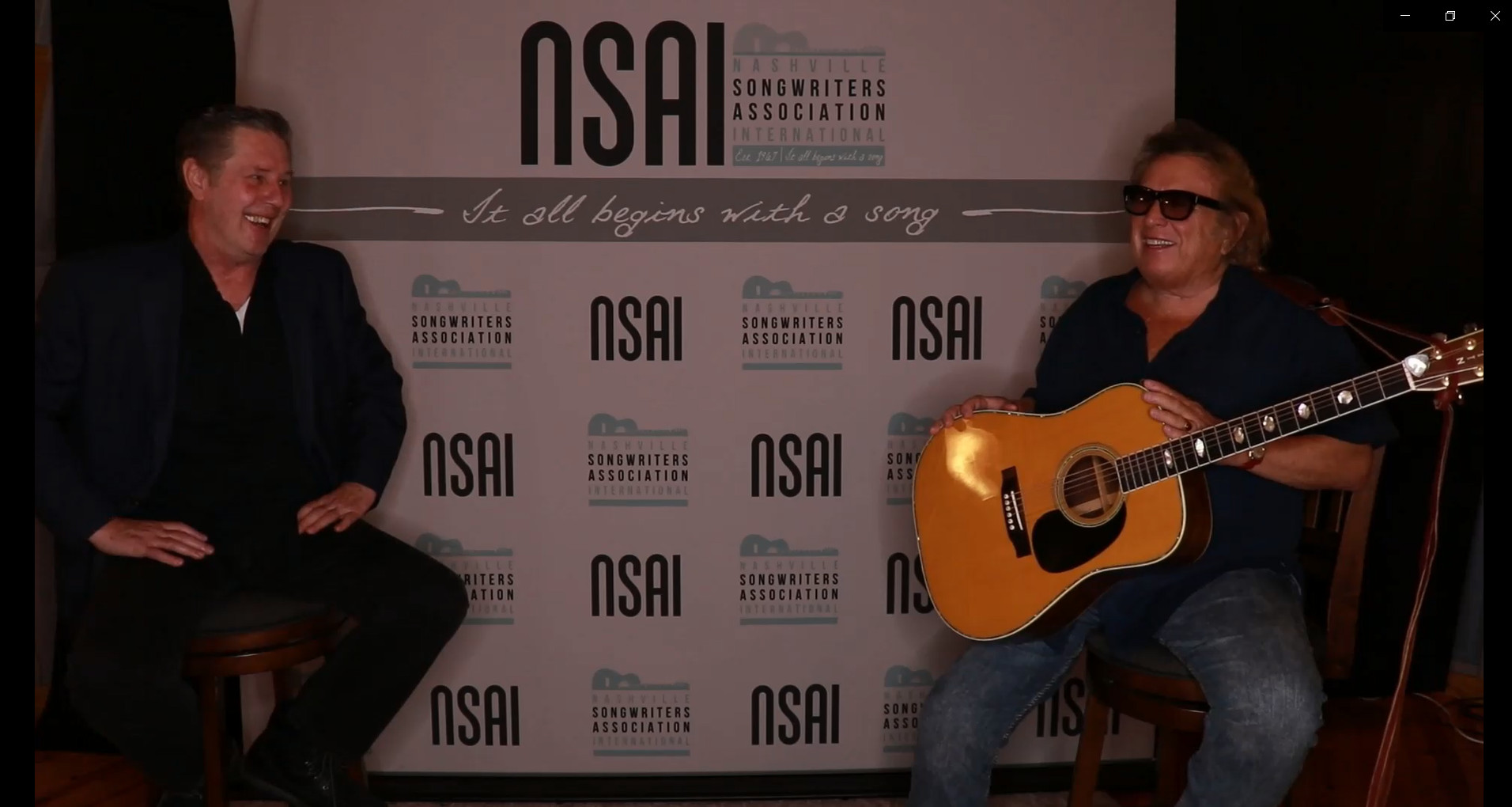Don McLean’s “American Pie” is more than just a song; it’s a cultural phenomenon. Fifty years after it first graced the airwaves in 1971, this enigmatic rock epic, clocking in at eight and a half minutes, continues to captivate and puzzle listeners. To mark its golden anniversary, McLean himself delved into the depths of its inspiration and enduring legacy in a conversation with Bart Herbison of Nashville Songwriters Association International, offering insights into the song that has sparked countless interpretations and secured its place in music history.

The Genesis of “American Pie”: A Spiritual Reflection of a Tumultuous Era
Herbison initiated the discussion by acknowledging the song’s monumental status, suggesting it could be considered “the greatest song ever written” and praising its profound reflection of a generation and its cultural landscape. McLean responded by emphasizing the volatile atmosphere of America at the time of the song’s creation. While not grappling with a pandemic, the nation was facing its own set of crises: cities were ablaze with unrest, and disillusionment with political figures like LBJ and Nixon was widespread. The Vietnam War cast a long shadow, bringing the grim realities of conflict into American living rooms through nightly news broadcasts.
“America was much more volatile than it is at the moment,” McLean explained. “We didn’t have a pandemic, but cities were burning. People in the street. We’d had enough of LBJ and Nixon. This was the kind of volatile world we were in then. The Vietnam War was breathing down everybody’s back.” He lamented the desensitization to war that comes with obscuring its human cost, a stark contrast to the era when body bags on television screens brought the conflict’s harsh reality home. Despite his evolving political views since 1970, McLean asserted that his fundamental opposition to anything “spiritually bad for the nation” remains unchanged.
He revealed a deeply personal layer to “American Pie,” describing it as “a spiritual song, about the spirit of the country and what was happening to it.” The music itself, he believes, embodies this spiritual essence and the prevailing sentiment of the time. The song’s genesis was humble, born from McLean’s spontaneous creative process. In his songwriting room, equipped with just a tape recorder, he began to sing, improvising the now-iconic opening lines: “A long, long time ago, I can still remember how the music made me smile. And I knew if I had my chance, I could make those people dance. Maybe they’d be happy for a while.” Even the line that anchors the song’s melancholic core, “but something touched me deep inside, the day the music died,” emerged organically in this initial flow of creativity, surprising even McLean himself.
From Ballad to Epic: Crafting the Unique Form of “American Pie”
McLean described songwriting as a solitary journey of introspection. The initial spark of “American Pie” lingered in his mind for months as he worked on his second album, the follow-up to “Tapestry.” Initially conceived as a ballad record, McLean felt the need to inject a different energy, seeking a chorus that would “rip it” rather than simply linger. This artistic tension shaped the song’s distinctive structure. He intentionally kept the first verse slow and reflective. Over the next three months, the song expanded, growing into five more verses of similar length, driven by a “rock dream kind of idea.” The fifth verse introduces further modulation, starting slowly, building to a rock crescendo in the middle, and then receding to a slower pace at the end, showcasing the dynamic shifts within the song.
“The form of this song is different from almost any song you would hear,” McLean noted, emphasizing his appreciation for its unconventional structure. The title itself, “American Pie,” arose somewhat mysteriously, yet felt undeniably right. Herbison concurred, recognizing its irreplaceable quality. McLean highlighted the incorporation of seemingly disparate elements, such as children’s nursery rhymes like “Jack be nimble, Jack be quick,” woven into the lyrical tapestry, adding layers of meaning and resonance. The album cover, featuring McLean’s thumb extended as if pulling it from a pie, was another serendipitous creative touch. George Whiteman, the cover artist, conceived the idea after hearing the song, resulting in an iconic visual representation that perfectly complemented the music.
“Bye Bye Miss American Pie” Takes Flight: Airwaves and Album Covers
Herbison recounted his personal experience as a 16-year-old DJ when “American Pie” was released. He bought the album based on the intriguing cover art alone, a testament to its visual appeal. The album cover, with its simple yet striking image of McLean’s thumb, proved to be a powerful draw, capturing the attention of record store browsers and radio DJs alike. McLean acknowledged the collaborative synergy that surrounded the song’s production, with the producer and cover artist intuitively grasping his artistic vision, even if he himself was still in the process of fully realizing it.
The song’s unusual length, exceeding the typical radio single format, led to an edited version being released, clocking in at just over four minutes. While McLean expressed a lack of direct control over such decisions at the time, the demand for the full-length version grew organically as listeners sought out the complete musical journey. Radio stations that played the longer version received double royalties from BMI (Broadcast Music, Inc.) due to its extended play time, effectively making it “like having two hits at once” in terms of songwriter revenue. Furthermore, the double-sided nature of jukebox records at the time meant “American Pie” occupied two slots, maximizing its presence and earning potential. Adding to its unique financial structure, McLean was the sole songwriter, further amplifying his share of the royalties. The edited version, starting directly with the memorable “Bye Bye Miss American Pie” chorus and heavily emphasizing the hook, swiftly ascended to No. 1 on the charts, solidifying the song’s commercial success.
Arrangement, Tempo, and Timeless Impact: The Enduring Legacy of “American Pie”
Herbison praised McLean’s masterful use of arrangement, tempo, and modulation within the song, emphasizing how these elements amplify its emotional impact. He highlighted the song’s ability to evoke deep feelings and its dynamic shifts in tempo and emotional delivery, describing it as a “knife twister in the most excellent way.” Despite the numerous interpretations of the song’s enigmatic lyrics and the rumored identities of characters like “the Jester” (often speculated to be Bob Dylan) or “Jack Flash” (Mick Jagger), McLean has remained famously tight-lipped about their specific meanings. Even when Dylan’s son inquired about the lyrics, McLean playfully deflected, suggesting, “your father would make a good jester though!”
Reflecting on the song’s immense and enduring importance, Herbison conveyed the profound personal impact “American Pie” continues to have, even decades later. He recounted listening to the song again in preparation for the interview and how it still moved him deeply, inspiring introspection and a renewed sense of purpose. “It makes me think. I look at (the lyrics). I listen. I appreciate it on so many levels,” Herbison shared, acknowledging the song’s continued relevance and emotional resonance. For him, “American Pie” served as a powerful call to action, urging him to “get off your (rear-end). You’ve still got things to do socially to make this world a better place.”
McLean, in turn, expressed humility and gratitude for the song’s reception and enduring legacy. He admitted to consciously avoiding pride, recognizing the extraordinary journey “American Pie” has taken him on. He described his career path as one of persistent effort and overcoming obstacles, rather than a smooth ascent to stardom. The stories and accolades he receives from listeners continue to uplift him, reinforcing the meaningful impact of his work. Ultimately, McLean expressed profound satisfaction in choosing a life dedicated to music, contrasting it with the conventional path his father had envisioned for him in the business world. “I’m just happy that I didn’t go into business and wear a suit, what my father wanted me to do,” McLean concluded, underscoring his commitment to his artistic calling and the enduring power of “American Pie.”
In conclusion, “American Pie” remains a monumental achievement in songwriting, not just for its commercial success and radio airplay, but for its profound cultural impact and enduring mystery. It is a song that continues to provoke thought, inspire emotion, and invite listeners to find their own meanings within its rich and layered narrative. “Bye Bye Miss American Pie song” is more than just a lyric; it’s an invitation to explore a piece of American history and the enduring power of music to reflect and shape our world.


